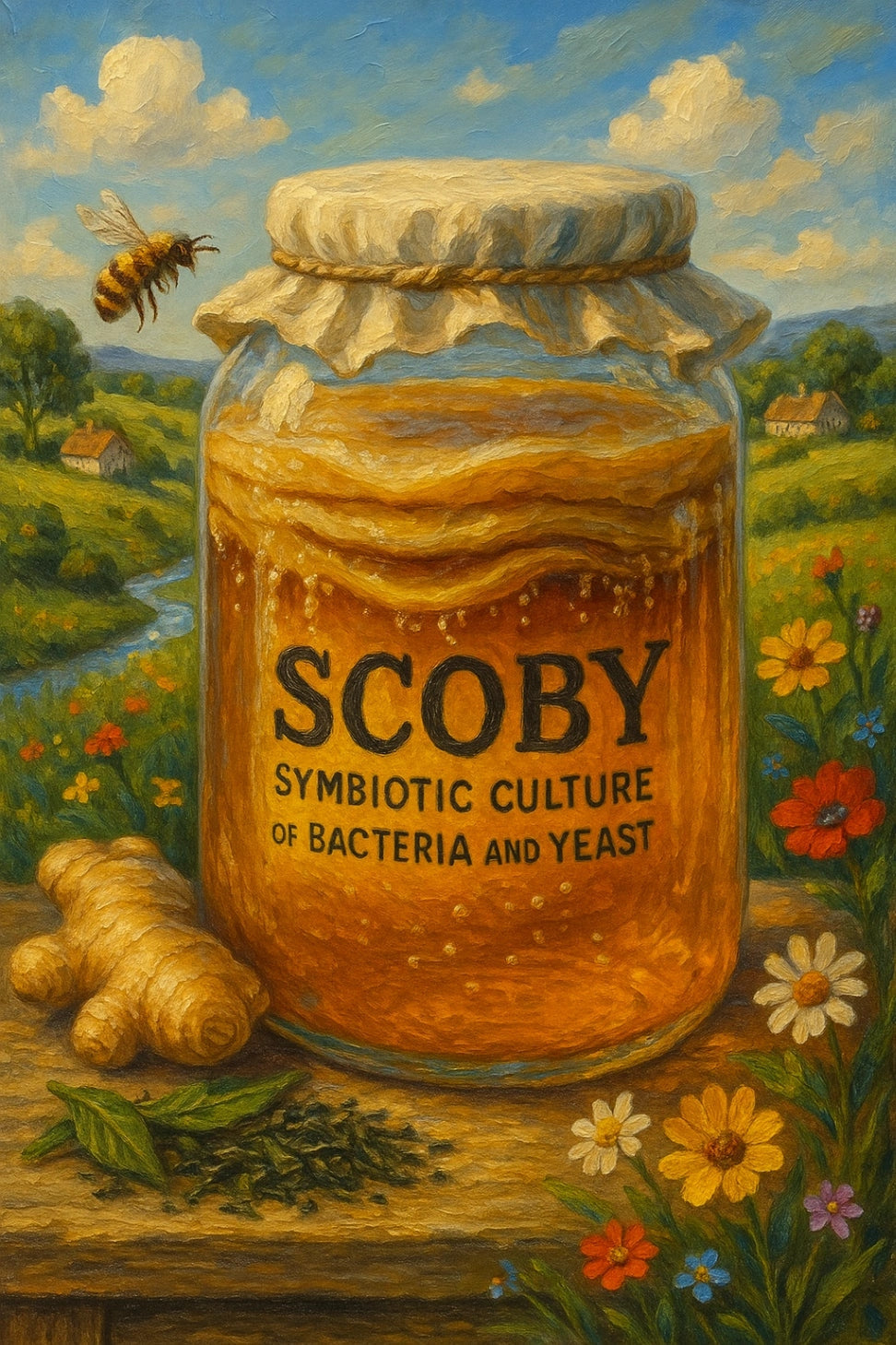Alcohol Free Sparkling Tea: Meet The Scoby Behind Refined Kombucha

SCOBY, the culture at the core
SCOBY stands for symbiotic culture of bacteria and yeast. It is a living community that transforms sweet tea into kombucha by consuming sugars and producing organic acids and gentle carbonation. The visible disc on the surface is a cellulose home for the microbes; the real conversion happens in the liquid. A well-kept SCOBY supports consistent, alcohol free style fermentation with clarity and poise.
From sugar to sparkle, how it works
During fermentation, yeast convert a portion of the sugars into small amounts of alcohol and carbon dioxide, then bacteria convert most of that alcohol into organic acids that bring brightness and length. Time, temperature, nutrition, and hygiene steer the balance between freshness and depth. Managed carefully, the result is a lively, alcohol free sparkling profile with fine bubbles and a clean finish rather than sharp vinegar or heavy sweetness.
SCOBY or selected cultures
Home brewers often rely on a general SCOBY and accept whatever flavours develop. For a polished alcohol free alternative to sparkling wine, control matters. Professional producers may work with selected cultures and tightly controlled conditions to shape flavour with precision, protect delicate aromatics, and keep the bead fine. The destination is similar, a kombucha that tastes purposeful and balanced.
Taste and texture, what to expect
A well-made kombucha should pour clear with a gentle sparkle. On the nose, expect citrus, orchard fruit, florals, herbs, or delicate tea leaf. On the palate, look for bright acidity balanced by subtle sweetness, a touch of tannin from the tea, and a refreshing, moreish finish. That balance is what makes kombucha a credible alcohol free choice for pairing and celebration.
Care, safety, and quality
Healthy fermentation starts with spotless equipment, good-quality water, and tea you would happily drink on its own. A healthy culture smells fresh and lightly fruity or floral; harsh solvent notes or strong vinegar suggest it needs attention or steadier temperature control. Because natural fermentation can produce trace alcohol, often in the region of 0.5% ABV, always check labels if you need a specific threshold for alcohol free choices, and seek professional advice if you are pregnant or managing a health condition.
Sustainability and the SCOBY
SCOBYs multiply as they ferment, which allows careful producers to propagate new cultures, share starters, and minimise waste. Excess cellulose can be composted, and spent tea leaves can enrich soil. Thoughtful practice turns alcohol free fermentation into a low-waste loop that respects both flavour and footprint.
- Posted in:
- Alcohol Free
- SCOBY
 0
0



